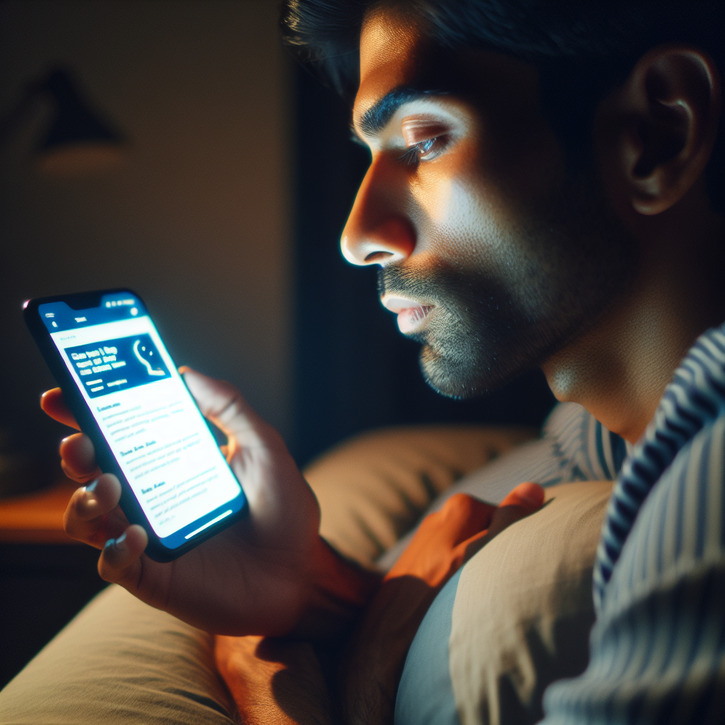The Role of Technology in Managing and Treating Sleep Issues

Introduction: How Technology is Shaping Our Sleep
You know how life just seems to be speeding by these days? It turns out, technology isn’t just about staying connected—it's also changing the way we sleep. With our modern routines and the constant buzz of digital devices, sleep issues are becoming more of a regular headache for many. Nowadays, people are turning to cool digital solutions designed to boost sleep quality, tackle insomnia, and ease other sleep problems. As our daily demands keep ramping up, using technology to build healthier sleep habits has never been more essential.
Think about the rise of wearables, mobile apps, and even telemedicine—it’s like having a sleep coach in your pocket! These innovations are opening up new ways to diagnose and treat sleep issues. Sure, sleep disorders are complicated, but with tech monitoring our habits, offering personalized treatment, and harnessing data-driven insights, taking control of our sleep just got a whole lot easier. These digital tools not only improve patient care, but they also empower you with real-time insights that can lead to both immediate relief and long-term benefits.
Modern Lifestyles and Their Impact on Our Sleep
Let’s face it: our current lifestyle can seriously mess with our sleep. With screens lighting up every corner of our day and a never-ending flow of information, it's no wonder sleep problems have taken center stage. Long hours spent in front of screens can throw off our natural sleep cycles—disrupting melatonin production and keeping our minds buzzing when they should be winding down. The mix of constant social media updates and daily stress only ramps up the challenge, making digital solutions for sleep more vital than ever.
And it’s not just screens; our environment and daily routines play a big role too. Think about all the urban noise, erratic work hours, and artificial lighting that we face daily. It’s no wonder that so many people are struggling to get a good night’s rest. The numbers are staggering—millions have sleep troubles, sparking a hunt for technologies that can track these disturbances and provide customized insights. These tools are proving to be game-changers, helping us create sleep-friendly environments and routines.
Wearables: Getting Real-Time Insights into Your Sleep
Wearable gadgets have totally changed the game when it comes to monitoring sleep in real-time. They keep track of everything—from how long you sleep to the different stages and interruptions throughout the night. Many of these devices even check your heart rate, blood oxygen levels, and movement, painting a detailed picture of your sleep patterns. This immediate feedback is a godsend for both you and your doctor, helping pinpoint issues and enabling quicker, more effective interventions.
Many users rave about how their wearables work like a personal sleep diary—only much smarter. Not only do they tell you when your sleep goes off-track, but they can also hint at why it’s happening. Whether it's flagging unusual night-time disturbances or linking poor sleep to stressful days, the data gives you a clear roadmap for improvement. Over time, patterns emerge, letting you tweak your lifestyle and surroundings to naturally promote better sleep.
Mobile Apps: Your Personalized Sleep Sidekick
When it comes to managing sleep issues, mobile apps are literally a lifesaver. These handy tools let you track your sleep, practice guided meditation, and learn relaxation techniques right when you need them most. Many people appreciate how these apps break down the daunting task of monitoring sleep into manageable daily habits. By pulling together data from different sources, these apps help you get a grip on your sleep patterns and make smarter choices about your routine.
And here's the kicker—the tech behind these apps is always getting better. Collaborations with sleep experts and up-to-date clinical research make sure that their advice isn’t just feel-good fluff, but solid, science-backed strategies. Users have shared countless success stories, speaking of noticeable improvements after adding these app-guided habits to their lifestyle. It’s a beautiful merger of technology, behavioral science, and a touch of personal care, all designed to help you beat your sleep challenges.
Telemedicine: Bringing Sleep Care to Your Home
Gone are the days of grueling, in-person sleep consultations. Telemedicine has made it possible to get expert advice on sleep issues right from the comfort of your living room. Virtual appointments mean you can connect with sleep specialists without all the hassle, leading to faster, more personalized care. It’s not just about convenience—telemedicine platforms are also compatible with various monitoring tools, giving doctors a real-time look at your progress and allowing them to adjust treatments accordingly.
Plus, remote consultations help break down geographic and logistical barriers, and they come with less of the stigma you might feel when seeking help for sleep problems. With automated reminders, digital records, and integrated monitoring systems, telemedicine offers a smooth, all-in-one experience. Clinicians and patients alike are seeing a transformative shift in how sleep issues are diagnosed and treated, making remote care a cornerstone of modern sleep health.
Smart Home Devices: Crafting the Perfect Sleep Haven
Imagine a home that knows just when it’s time to wind down—smart home devices are making that a reality. Thanks to IoT and AI, modern homes can now adjust lighting, temperature, and ambient noise automatically to create a sleep-friendly environment. For example, smart lights can mimic a natural sunset to signal your body that it’s time to relax, while smart thermostats ensure that your room stays perfectly cool or warm, depending on your needs. Even subtle background soundscapes can help you drift off into a peaceful sleep. These aren’t futuristic dreams—they’re practical solutions to real sleep challenges.
The beauty of smart home technology is that it evolves with you. As AI gets better at spotting your unique sleep patterns and environmental triggers, these systems can learn and adapt over time, ensuring your bedroom always hits that perfect vibe. Early adopters are already sharing how these devices have transformed their sleep quality, proving that digital harmony can be a game changer for your nightly rest.
Data-Driven Research: Rethinking Sleep Management Through Analytics
Big data and analytics are ushering in a new era for understanding sleep. Today’s cutting-edge research uses massive amounts of data from wearables and apps to spot trends and even predict sleep disturbances before they become major issues. By applying machine learning, researchers are uncovering hidden patterns that traditional methods often miss, which means sleep disorder treatments are getting smarter, not one-size-fits-all.
Thanks to these data-driven insights, treatments can now be tailored to your specific sleep needs. Researchers and health professionals are constantly refining their models to ensure that the path to better sleep is backed by solid science. As more real-world data is gathered, the potential for breakthroughs in early detection and personalized care skyrockets. It’s pretty exciting to see how each new tech development brings us a step closer to cracking the code on sleep disorders.
Conclusion: Embracing the Future of Sleep Technology
To wrap it all up, the wave of technological innovations is opening a promising new chapter in the fight against sleep issues. From real-time insights with wearables to personalized sleep apps, and even remote care via telemedicine, technology is merging with sleep health in ways we could have only dreamed of a few years back. With smart home devices and data-driven research stepping in to further support these efforts, there’s never been a better time to explore these options.
Looking ahead, it's clear that embracing these innovations is key to managing and improving our sleep. Whether you’re just starting to notice sleep problems or you’re exploring advanced options to fine-tune your nightly rest, these digital tools are here to stay—and they’re only getting better. Now might be the perfect moment to dive into these exciting resources and take a proactive step towards a healthier, happier sleep routine.






